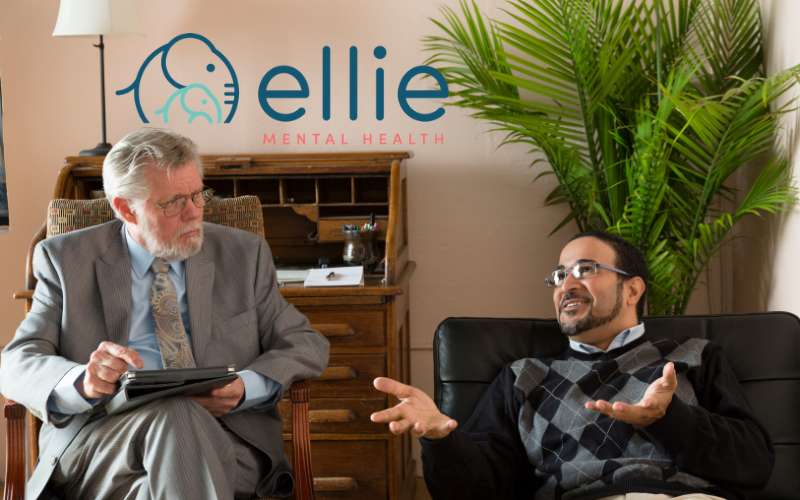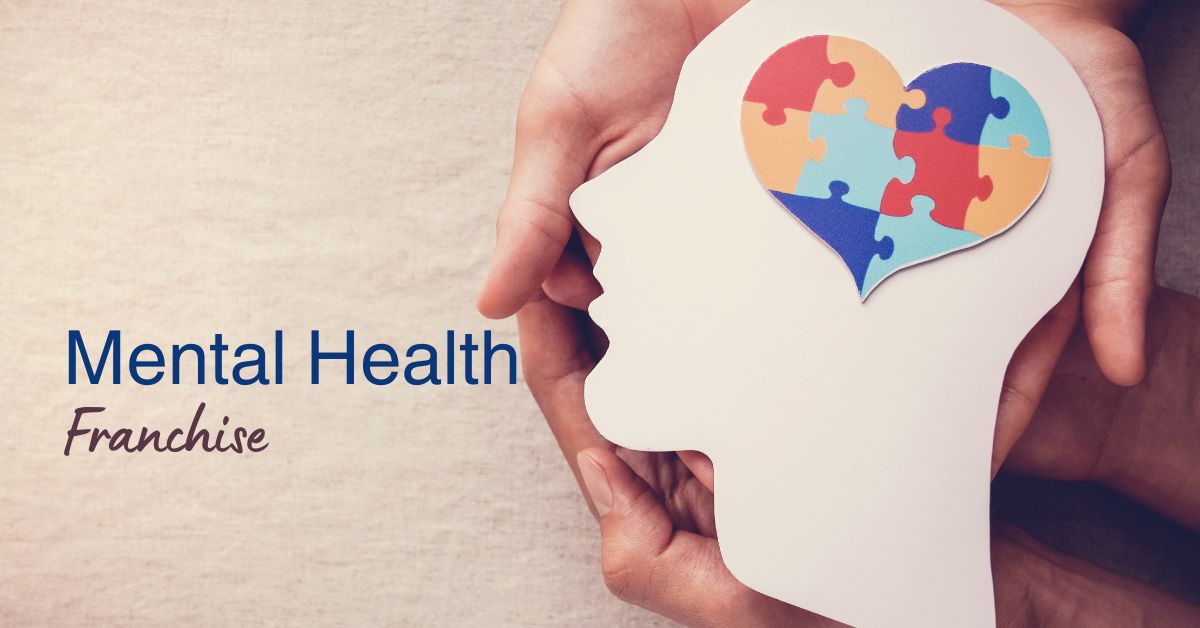Mental health isn’t something healthcare can treat as “extra” anymore—it’s essential. More people are looking for help with depression, anxiety, substance abuse, and other behavioral health challenges, and that need shows up in every age group and in every community.
Because of that, the mental health sector has kept growing, and it’s opened the door to more mental health franchise opportunities for people who want to own a business that has a real purpose and steady demand.
That said, buying into a mental health franchise isn’t a simple plug-and-play decision. You need to understand the local market, what mental health services you’ll actually provide, the legal and regulatory requirements, and the responsibility that comes with running a mental health clinic—because what you do can directly affect people’s lives.
In this article, we’ll break it all down in a practical way: key market numbers, common services, the real risks and rewards, and what to look at before you invest—so you can move forward with clarity and confidence.
Understanding the Mental Health Market
Mental health care is a bigger part of everyday life in the U.S., and the mental health market is growing with it. One widely cited estimate values the U.S. behavioral health market at $90.5B in 2020 and projects it could reach about $132.4B by 2027 (around 5.3% growth per year).
But growth doesn’t mean people can actually get help. The National Institute of Mental Health reports that 23.1% of U.S. adults with a diagnosable mental health disorder in 2022, and only 50.6% of adults received treatment. SAMHSA also reports that in 2023, 27.1 million adults with any mental illness did not receive treatment, and 6.2 million said they needed care but didn’t get it.
That gap is a big reason mental health franchises are getting attention. When they’re done responsibly, they can make mental health services easier to access and help normalize seeking support, especially in communities where care is hard to find.
What Is a Mental Health Franchise?

Think of a mental health franchise as a way to open a mental health clinic with a brand and system already built. Instead of starting from zero—figuring out processes, operations, and tools on your own—you’re joining an established model that’s designed to be replicated.
And in many cases, you don’t have to be a licensed mental health clinician to own the business. The clinical work is done by credentialed professionals you hire or partner with, while you focus on running the business side and making sure the clinic operates smoothly.
Most mental health franchises fall under the wider behavioral health space, and services often include:
- Counseling and therapy (one-on-one, couples, and family sessions)
- Support for anxiety, depression, trauma, and more
- Programs for children, adults, and families
- Telehealth and in-person sessions
- Substance abuse counseling and recovery support
- Sometimes, medication management services
At its best, the franchise model helps owners deliver care in a way that’s organized, consistent, and compliant. This matters a lot when you’re working in a field that touches real people and real lives every day.
Types of Mental Health Services
Mental health franchises come in a few main styles. Each one serves clients a little differently.
Counseling and Therapy Clinics
This is the most common setup. Clinics offer counseling for individuals, couples, and families. They often help with anxiety, depression, grief, stress, and relationship issues.
Brands like Ellie Mental, Nora Mental Health Franchise, Health, Okay Humans, and Lifeologie Counseling fit here. Many focus on a modern approach, not an outdated therapy model.
Clinics Offering Medication Management Services
Some clinics, like those offering psychiatric care, also include evaluations, prescriptions, and ongoing medication management in their services. For example, Nora Mental Health fills these needs.
Because clinics offering medication management services deal with medical treatment, there are usually more rules and safeguards involved. They need licensed prescribers on staff, and they may have to work closely with insurance and state organizations to stay compliant.
Substance Abuse Treatment Centers
These centers focus on substance abuse and recovery. They may support detox planning, counseling, and long-term therapy. The goal is to help clients stay on track and rebuild stability.
Holistic Wellness Centers
These take a bigger-picture approach. They may mix therapy with wellness services. The focus is overall well-being—mind, body, and community.
Full Service Mental Health Care
Some franchises are built to be more of a one-stop shop. Instead of sending clients to different places for therapy, psychiatry, or extra support, they try to offer everything under one roof. These franchises often offer multiple service lines, including individual therapy, group sessions, psychological testing, and corporate wellness programs.
Why Mental Health Sector Is in Demand
Recession-Resistant Industry
Mental health industries are often considered recession-resistant. Insurance companies are legally required to cover many mental health services, ensuring continued demand even during economic downturns.
Expanding Access to Care
Franchises help normalize seeking support by increasing clinic locations, offering telehealth, and embedding services within local communities.
Growing Awareness and Reduced Stigma
As conversations around mental health become more open, demand for accessible care continues to rise across the world.
Rewards of Owning a Mental Health Franchise

A Rock Solid, Long-Term Market
Mental health care isn’t some fleeting fad. People need support no matter what’s going on in their lives, so demand stays steady all year round – even when the economy is booming or tanking.
Built-in Support to Get You Going
One of the best things about joining a franchise is that you get access to ongoing support and training to help you run your business day to day. And let’s be real, that’s a huge help if you’re new to healthcare.
Typically this training covers the basics of running a business, how to handle insurance and billing, what policies and procedures to follow, staying on top of compliance and documentation, and how to market yourself and bring in new clients.
Getting Set Up With The Tools You Need
Franchisors also bring a whole bunch of tools and resources that you’d otherwise have to go out and find (and pay for) yourself. Think scheduling software, electronic health records platforms, and marketing materials that are ready to use – all the things that can help you save time and avoid reinventing the wheel.
You Can Make a Real Difference
And let’s not forget the best part: this kind of business can actually make a real positive difference in your community.
You’re helping people get the care they need faster, supporting families through the tough times, and building a business that people can actually rely on. Like the fast-growing franchises, such as Ellie Mental Health and Nora Mental Health Clinic.
Risks and Challenges to Consider

The Costs of Getting Started
You’re going to have to put down a pretty penny to get started – and that’ll depend on things like where you’re setting up shop, how big your clinic is, who you’re hiring, and whether you’re offering any medication-related services.
And then there are the ongoing costs to think about, like royalties, payroll, marketing, and making sure you’re compliant with all the right regulations.
It’s Complicated – Staying Compliant
Mental health clinics come with a whole bunch of rules and regulations that you’re going to have to stay on top of – HIPAA, state regulations, insurance billing requirements… it can get pretty overwhelming if you don’t have a good handle on how to keep everything in order.
Finding and Keeping Good Staff
Finding licensed mental health clinicians who are actually a good fit for your clinic can be tough – and getting them to stick around long-term isn’t always easy either, especially if you’re working in an area where mental health care is in short supply.
Its Not All Your Own Show
With a franchise, you don’t get complete freedom to do things your own way. You’ll have to follow the brand’s standards and procedures, which can feel limiting if you’re used to cutting your own path.
FAQs
Because a lot of mental health services are covered by insurance, and insurers are required to include mental health coverage. So even when money feels tight, many people can still access care through their plan.
It shouldn’t be “just the basics.” Strong training usually covers business fundamentals, how insurance and billing work, and clear policies and procedures, so you know how to run the clinic day to day.
Most franchisors provide tools and resources that would be expensive to set up on your own. That can include tech platforms, scheduling systems, marketing materials, and operational systems that make running the business smoother.
Most focus on therapy sessions for real-life concerns like anxiety and depression. That usually includes one-on-one counseling, couples therapy, and family therapy—depending on the clinic’s model and staff.
Substance abuse treatment centers focus on addiction recovery and often include detox support, counseling, and ongoing recovery programs. Holistic wellness centers take a broader approach and may combine therapy with other wellness services to support mental well-being from multiple angles.
Final Thoughts
Mental health franchises are growing fast, and it’s easy to see why. More people are struggling, and more people are finally reaching out for help. The problem is, a lot of them still can’t get care when they need it most. So if you’re looking at a mission-driven franchise, this space can feel deeply meaningful—but it’s also not something to rush into.
With the right guidance, strong support, and a real commitment to doing things the right way, a mental health franchise can help bring services into more communities. You are not just making care easier to access, but making a positive impact on peoples lives.
If you’re thinking about about, becoming a successful franchise owner in this field, talk to a franchise consultant. An expert who can help you with the entire process, like initial investment, ongoing fees, training, and what to look for in the Franchise Disclosure Document (FDD).
Then you can choose a brand that truly fits your values, budget, and long-term goals.


